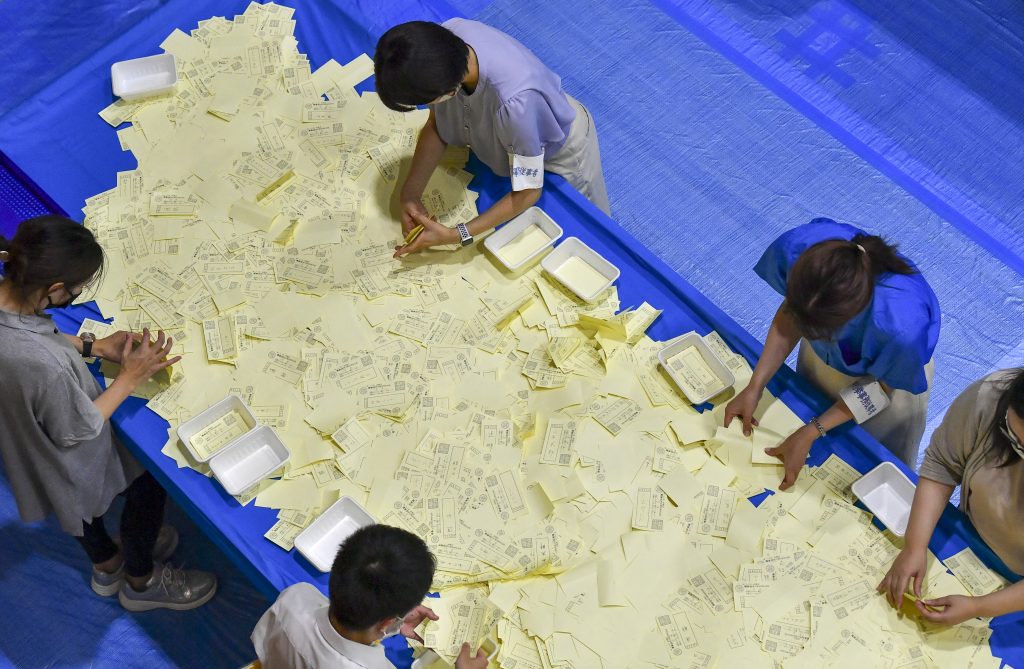
- ARAB NEWS
- 17 Aug 2025

TOKYO: The number of women who won seats in Sunday’s House of Councillors election in Japan came to 35, the highest for any poll for the upper chamber of the Diet, the country’s parliament.
The previous record high was 28, marked each in the 2016 and 2019 Upper House elections. Of the 35 female candidates, 21 secured seats in prefectural constituencies, and 14 under the nationwide proportional representation system.
Meanwhile, the proportion of the elected women in all female candidates in the latest triennial Upper House poll fell 7.6 percentage points from the 2019 poll to 19.3 pct, lower than the 24.7 pct for successful male candidates.
In the latest election, a total of 125 seats were contested–74 for constituencies, 50 under the proportional representation system and one to fill a vacancy in the prefectural constituency of Kanagawa, south of Tokyo.
The law for promoting gender equality in the political field calls on political parties to, among other things, ensure that the number of female candidates is set at the same level as that of male candidates as much as possible.
Of all candidates in Sunday’s election, women accounted for 181, or a little more than 30 pct. Female candidates made up a majority of all candidates at the leading opposition Constitutional Democratic Party of Japan and at the Japanese Communist Party, also an opposition party.
Of all elected candidates, 28.0 pct are women, up from 22.6 pct in the 2019 election.
The ruling Liberal Democratic Party saw 13 of its 19 female candidates win seats.
Only nine out of the CDP’s 26 female candidates won seats. They made up a majority of the party’s 17 successful candidates.
At the JCP, two of its four elected candidates are women.
The Social Democratic Party secured only one seat in the election, won by a female candidate–its leader, Mizuho Fukushima.
Three women gained seats at opposition Nippon Ishin no Kai (Japan Innovation Party), and two each at Komeito, the coalition partner of the LDP, and the Democratic Party for the People, an opposition party. Reiwa Shinsengumi and the NHK Party, which is critical of Japan Broadcasting Corp. (NHK), the country’s public broadcaster, saw no female candidate win a seat.
Among prefectural constituencies, women won half of the contested seats in Tokyo and Osaka. Six seats were up for grabs in Tokyo and four in Osaka Prefecture, western Japan.
JIJI Press